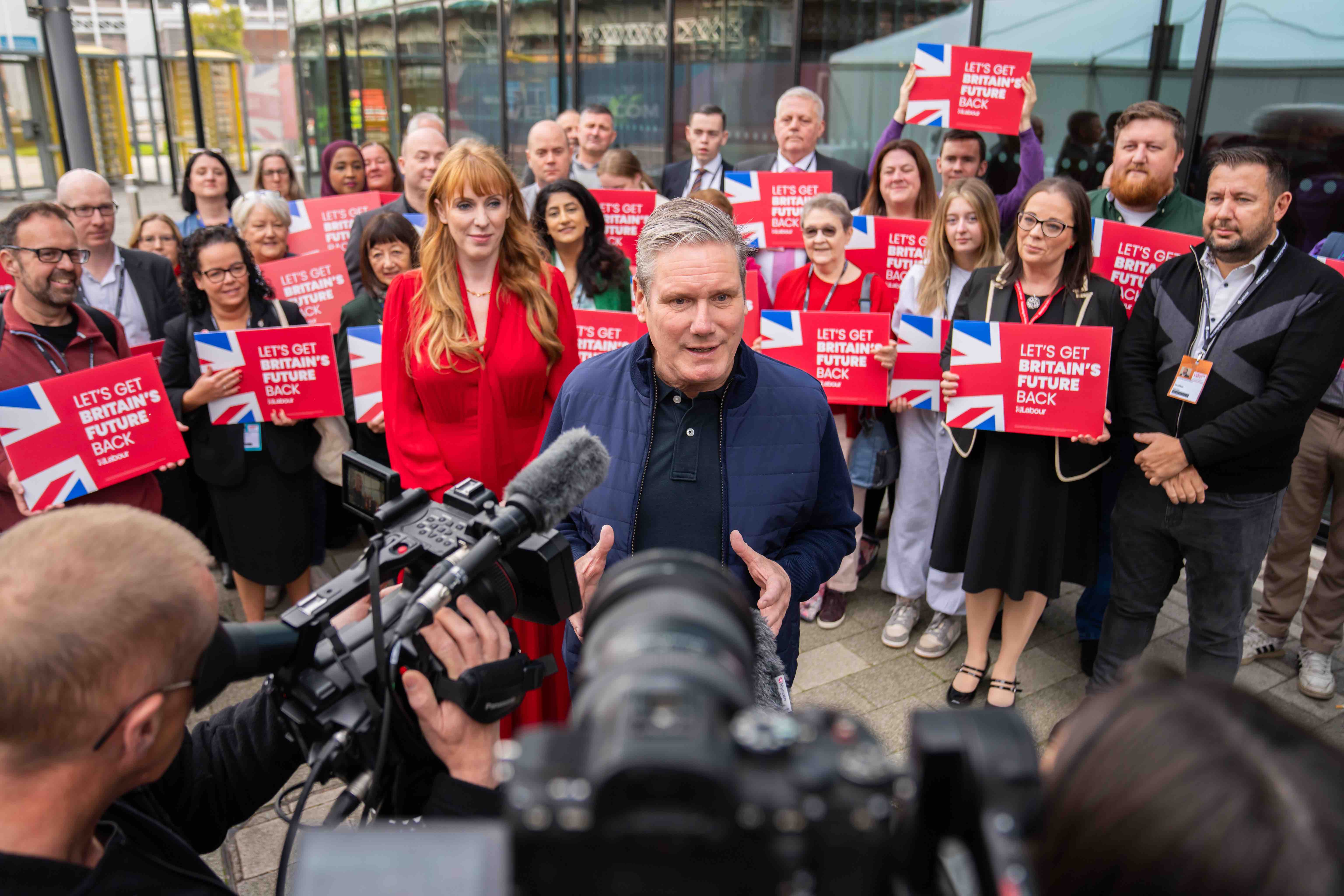Labour in Liverpool: So this is where all the champagne got drunk
It's impossible not to notice the number of lobbyists at conference
Thursday, 12th October 2023 — By Anna Lamche

Sir Keir Starmer arrives in Liverpool [Keir Starmer FlickR]
“BIG business is swarming into the Labour Party conference,” the former shadow minister Sam Tarry observes at a packed fringe meeting on Sunday night.
And it’s true: this year’s Labour Party conference is reminiscent of a corporate marketing event, with meetings sponsored by energy, insurance and payday loan companies.
Journalists joked they have enjoyed more champagne here than at the Tory conference in Manchester the weekend before.
The secure zone is populated by men and women in sharp trouser suits and polished shoes.
“Ordinary” members who eschew suit and tie prove hard to spot among the sea of consultants and lobbyists in uniform. Journalists lick their finger and feel the political wind has changed. Predictably, national papers are churning out flattering profiles of would-be ministers.
Members of the shadow cabinet obligingly answer easy questions from the broadcast media. When so many in the press pack source their scoops from late-night WhatsApp messages sent by ministers, the fear of losing access is palpable.
The centre of gravity has shifted.
Some hacks go looking for Jeremy Corbyn – he is both consigned to history according to his critics and chased for his opinion every week– only to find he hasn’t even applied for a conference pass.
The speeches on the main stage are serious and businesslike. Starmer does not “doubt that the fire of change still burns in Britain”.
The whole production is designed to indicate that Starmer is the continuity candidate. He embodies the comforting fantasy that we might return to so-called “grown-up” politics, before a series of global shocks – the end of cheap energy, the pandemic and Brexit – destabilised the nation-state.
Former party staffers who worked for his predecessor float around the edges of the conference in new jobs, observing proceedings with a mixture of resignation and despair. This Labour conference has been about getting ‘the establishment’ – big business, the media, and middle England – on side.
And, for now, it seems they have been convinced. But it is not yet clear whether the ordinary people of this country will fall in line, convinced by the Union Jack flags draped over every available surface.
It’s an obvious a turning point in British history, but even a handful of Mr Starmer’s admirers wonder if he has really offered a radical programme capable of rising to the occasion.
Expectations among the electorate will need to be carefully managed after a general election win, more so if the plan is a steady maintenance of a status quo – or a more competent version of what we already have.
We saw last week where the trapdoor lies if people’s lives are not swiftly improved, as Nigel Farage circled the Conservatives.
